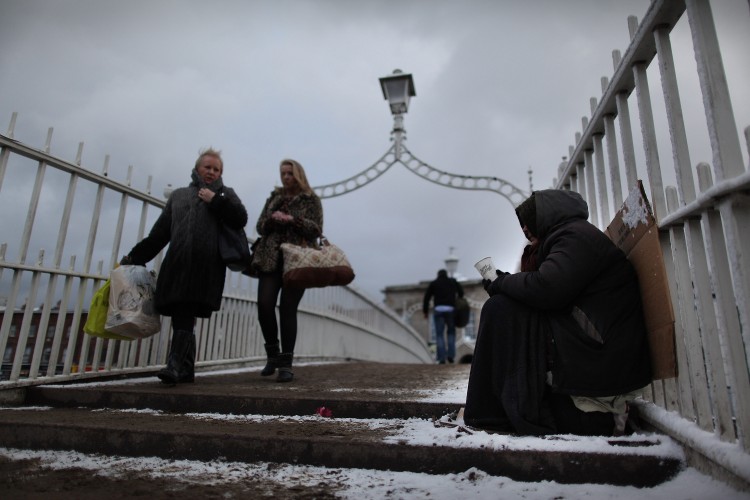
But have we really disassociated ourselves from the prejudices we have always held? Can we really say that we don’t accept the way this problem is escalating; that we want to put an end to it? Because it seems that we want to deal with homelessness, but we don’t want to be involved. This was recently demonstrated when plans for a new shelter on Fitzwilliam Street Lower were objected to by local businesses, proving that, in theory, many of us like to show our support and express our outrage at the indignity of it all, but, in reality, we still have a ‘not where I can see it, not on my doorstep’ mindset.
These objections reinforced the idea that we still see homeless people as a burden, not as a societal problem that could affect any one of us, and most certainly not as a duty that we need to fulfill. Local businesses claim that such a shelter would spoil a historic part of the city, implying that it is better to leave it derelict, rather than use it to benefit the people who have been failed by us. This response is quite surprising, seeing as this particular area is in central Dublin, a prime sleeping spot for Dublin’s homeless. Surely the people working there see the countless figures sleeping in doorways on their way to work every morning – or have they managed to turn a blind eye to this too? They don’t want the shelter to bring homeless people to their area, but the reality is that they are already present; in doorways, street corners, and arches. The argument masks the fact that they don’t want the problem landed on their doorstep.
It further implies that the use of the building to house the homeless will result in the demise of the local area. Homelessness is not a disease: the building will not be infected, the people will not tear it down. The area will see a new type of face, but this does not mean that people will avoid it. It will be a shelter, and those availing of it will not destroy the only roof they have. Homelessness cannot be equated with vandalism, it affects people who were affected by the economic crisis.
Their excuse is that the area will not be enhanced, but this is not business, where the primary goal is to enhance profit. This is an issue of basic human dignity and the functionality of our system. The basic functioning of a support mechanism is not too burdensome or over-ambitious a goal for a society to have, it is in fact one of the simple principles upon which democracy is founded.
The second objection was to the shelter providing a methadone programme and a needle and syringe exchange, despite the fact that these services have not even been planned for the shelter yet. Common opinion is that these services are negative aspects of the centres, supporting the notion that people think it is best to provide short term beds without also dealing with their immediate problems. The truth is that many residents will be using drugs, and if they can’t access clean needles, they will reuse dirty ones. Therefore, it makes sense from a public health point of view, that while the drug addiction is a long term problem and can’t be dealt with by a temporary hostel service, if sterile needles were readily available for those who are going to inject either way, the person is far less likely to catch infections carried by dirty needles, and will therefore be in better health as a result of this simple service.
In the long term, drug addiction needs to be tackled with professional advice and support, but in the short term the risk of life-threatening illnesses such as HIV and AIDS can be greatly diminished. The objection is shameful. It suggests that ignoring the addiction will make it disappear, where in fact such action will actually worsen the situation.
This response demonstrates that negative stereotypes are still deeply ingrained in our society. The victim of a knife attack objects to the shelter as she fears that it will bring more crime to the area and endanger her business. In doing this, she has correlated homelessness with criminal activity, an extreme generalisation. It is true that many drug-addicts steal to fund their addiction, but there was no evidence that her previous attackers were homeless.
But not all homeless people are addicts. Many are normal people like you and I, who unfortunately lost their home due to economic difficulties. It is disgraceful to generalise every homeless person into the category of chronic drug addict. Is it a sign of utmost disrespect for someone who has fallen on bad luck. We don’t know their story, where they came from, or why they are homeless today. We teach our children not to judge a book by its cover, to always get to know someone before making a judgement. But judgement is exactly what we are doing in shunning the homeless.
Homeless people are grateful for support services. These shelters are the closest thing they have to a home. They provide a warm place to stay and access basic human facilities. Would you like it if people made judgements about you, before you can even defend or prove yourself? I wouldn’t think so.






